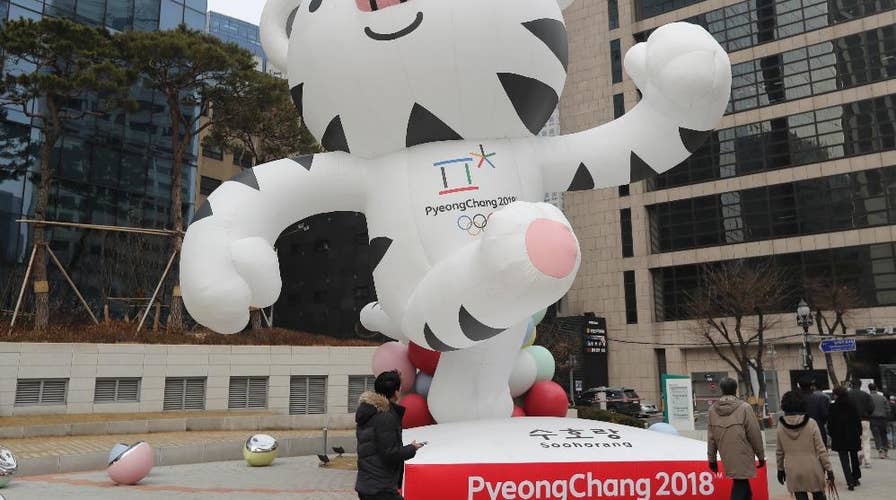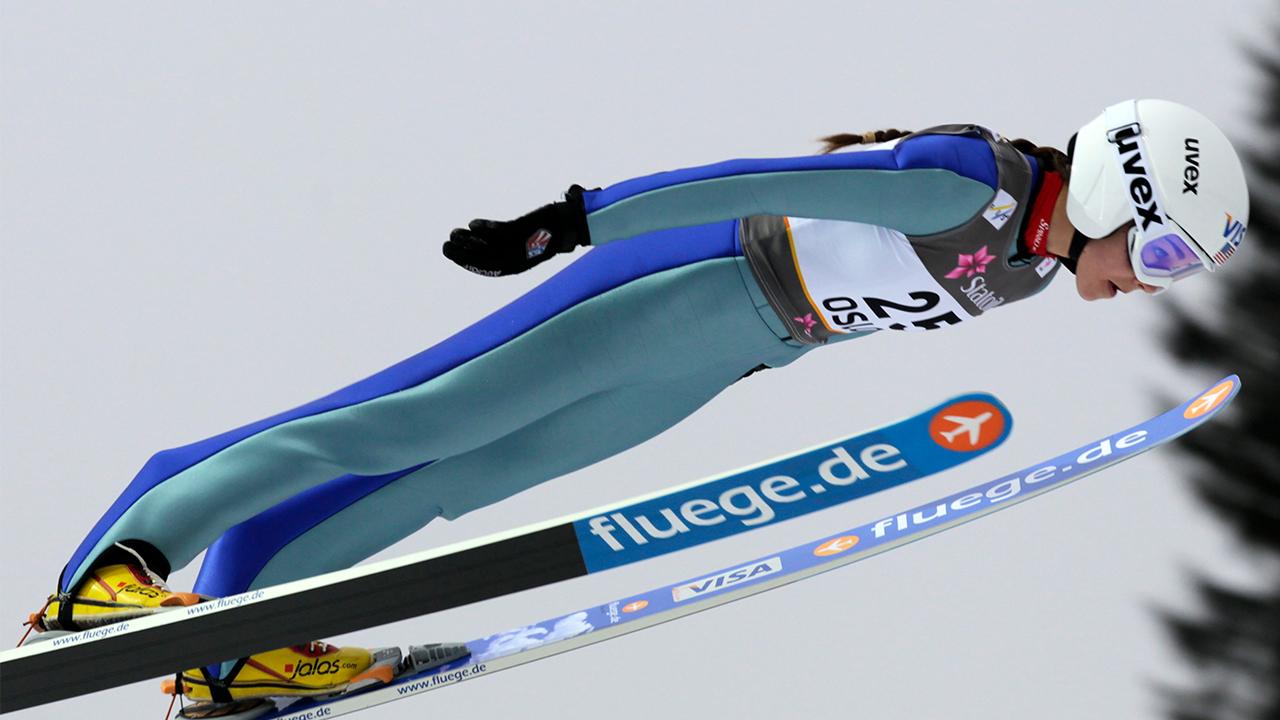2018 PyeongChang Winter Olympics: Fun facts
The 2018 Winter Olympics games, taking place in PyeongChang, South Korea, kicks off in February. From the mascots to who’s competing, here’s a look as some facts about the historic sporting event.
Athletes arriving in South Korea were expecting cold, wintry conditions in Pyeongchang for the Winter Olympics, but many have been hit with downright dangerous and bitter weather that's fazed even the most experienced athletes.
Relentless wind gusts of up to 45 mph have so far held up the start of Alpine skiing, as the men's downhill on Sunday and the woman's giant slalom on Monday were called off hours before they were supposed to begin.
Low temperatures in the single digits, combined with gusty conditions, have made it feel like well below zero degrees throughout the weekend. Organizations on Monday said the wind chill was supposed to feel like -4 degrees at the Yongpyong Alpine Centre, according to Yonhap News.
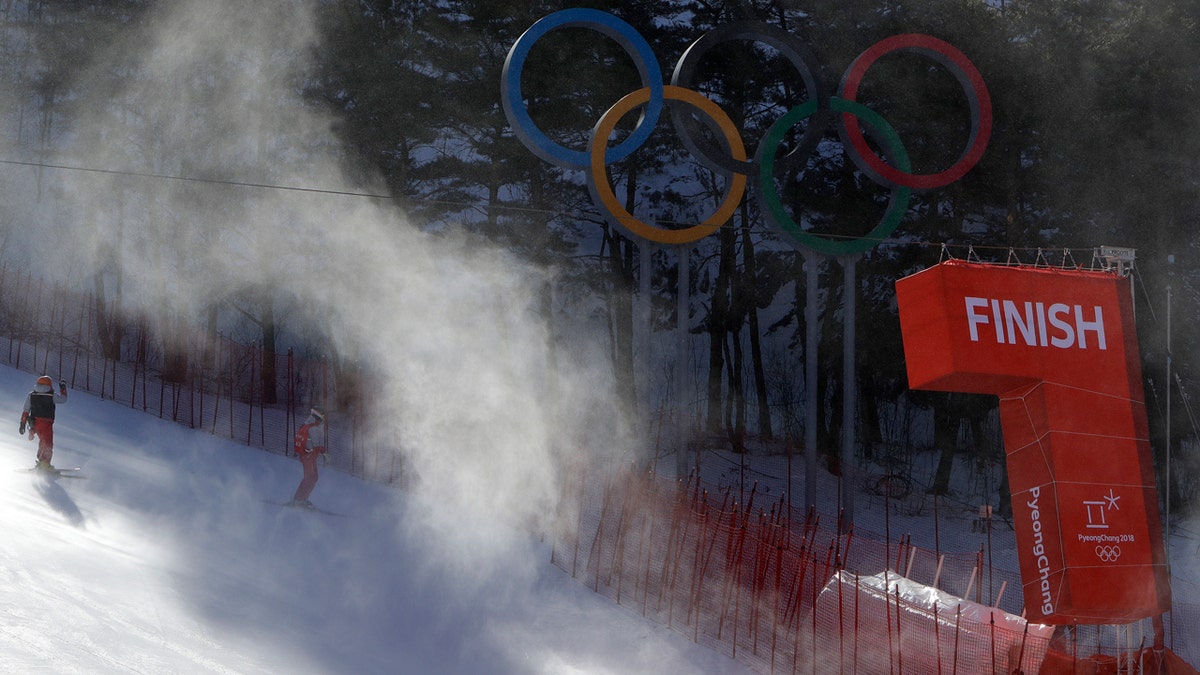
The women's giant slalom at the Winter Olympics was postponed due to high winds. (AP)
Sung Baik-you, spokesperson of the Pyeongchang organizing committee, told Yonhap the safety of athletes was the biggest factor in the rescheduling, and that weather conditions are supposed to become more manageable by Thursday.
The frigid chill caused hundreds of fans to leave the women's slopestyle snowboarding event on Sunday when the qualifying round was called off amid a flurry of mistakes on the course. Many of the snowboarders didn't think they should have been out there.
"You're going up the chairlift and you see these little tornadoes," Czech snowboarder Sarka Pancohova, who finished 16th, told the Associated Press, "and you're like, 'What is this?'"
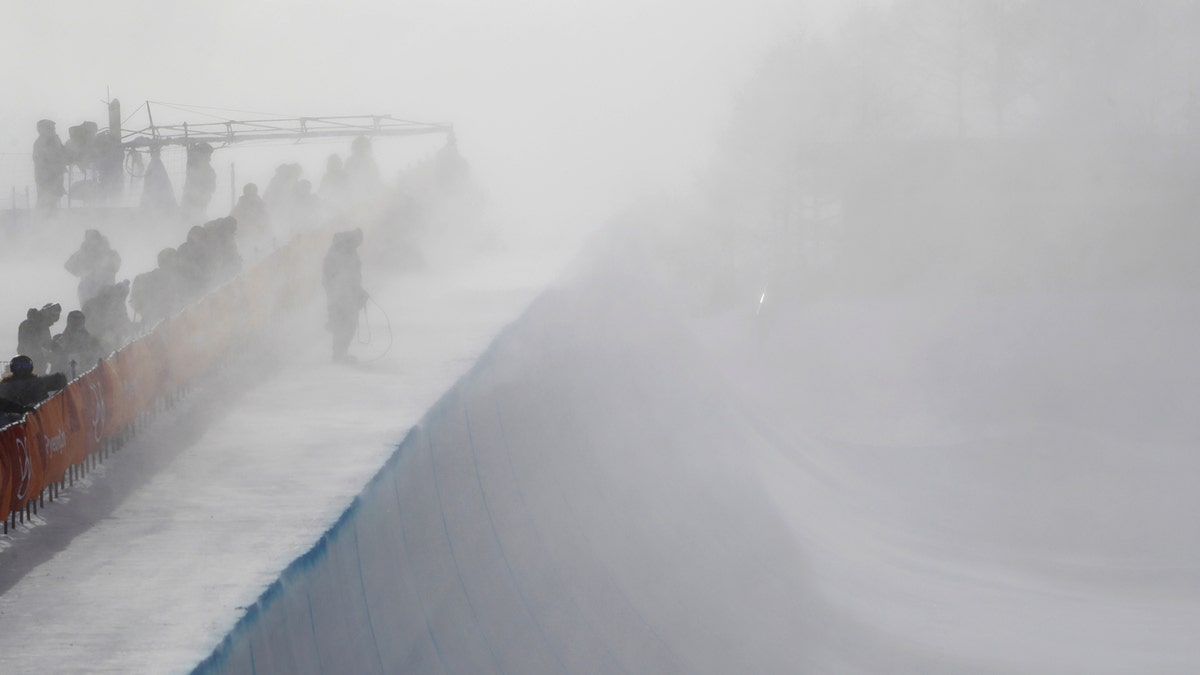
Wind gust engulfs the half pipe course during the women's halfpipe qualifying at Phoenix Snow Park in Pyeongchang, South Korea. (AP)
The final slopestyle event on Monday started 75 minutes late, and 41 of the 50 runs ended with snowboarders crashing or essentially giving up during their runs.
“It was horrible,” Spencer O’Brien of Canada, who finished 22nd, told The Wall Street Journal. “I hope everyone knows that this isn’t a true representation of women’s snowboarding.”
AMERICAN JAMIE ANDERSON DEFENDS OLYMPIC GOLD IN TOUGH SLOPESTYLE PERFORMANCE
The International Ski Federation in a statement Monday said although the conditions made the competition challenging, “the nature of outdoor sports also requires adapting to the elements," and the "first priority for FIS is the safety of the athletes and FIS would never stage a competition if this could not be assured." The organization said it monitors weather conditions “throughout the day” and considered them to be “within the boundaries to stage the competition safely.”
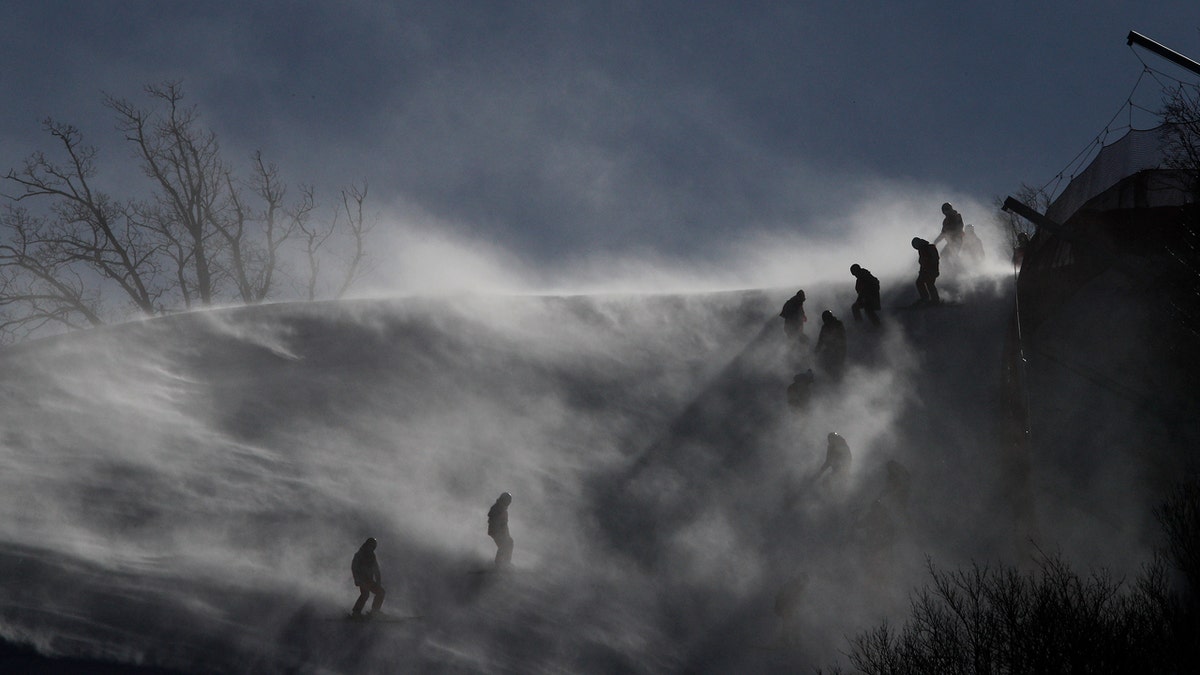
Course crew are shrouded in snow as they slip slide to the finish at the women's giant slalom. (AP)
"It has to be absolutely petrifying, terrifying, being up that high in the air, and having a gust 30 mph coming sideways at you," United States Ski and Snowboard Association CEO Tiger Shaw told the AP.
Ski jumping has also been affected by the wicked gusts in Pyeongchang, as organizers have set up giant netting to reduce the fierce gusts. The men's normal hill final was pushed back several times Saturday, and eventually finished after midnight.
"It was unbelievably cold," said Japan's Noriaki Kasai, competing at his record eighth Olympics. "The noise of the wind at the top of the jump was incredible. I've never experienced anything like that on the World Cup circuit. I said to myself, 'Surely, they are going to cancel this.'"
LIST OF WINTER OLYMPICS 2018 MEDAL WINNERS
The ongoing delays in the start of Alpine skiing have organizers working overtime to come up with contingency plans to get the full 11-race program completed before the games wrap up on Feb. 25.
Apline skiing has faced disruptions at two previous Winter Olympics: the 1998 games in Nagano, Japan faced heavy snow and rain and the men's downhill was rescheduled three times, while the 2010 games in Vancouncer were impacted by course conditions and warm weather.
“It is a little bit early to discuss [scrapping competitions],” International Olympic Committee spokesman Mark Adams told Reuters. “Nagano held the downhill five minutes before the closing ceremony. We have reserved space so this is a touch premature.”
The Associated Press contributed to this report.








































